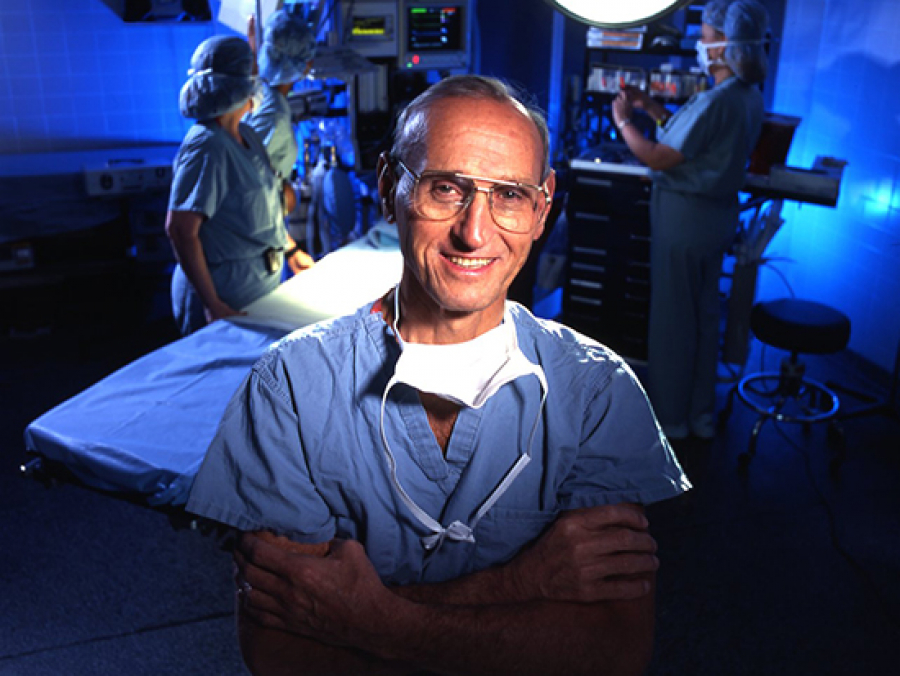Latest News

COVID-19 vaccines were not developed overnight. Here are the astounding stories behind mRNA vaccines.

Students, faculty and staff will celebrate a new addition to the UAB community with a ribbon-cutting for the McMahon residence hall, which will open this fall.

The new gaming system uses commercially available technology which helps to reduce costs.

Final results of the UAB-led national study on high blood pressure confirm a target goal of less than 120 mm Hg reduces adverse events.

UAB experts explain some of the benefits of getting a COVID-19 vaccine.

Knowledge of the specific flagellins that drive the pathogenic immune response in Crohn’s disease is a step toward a potential preventive treatment.

In a study conducted among more than 1.3 million American adults, UAB investigators found that Alabama and Southern states have the worst cardiovascular health, citing higher death totals due to cardiovascular causes.

Physicians treating heart disease with anti-coagulants should factor the presence of kidney disease into their decisions on medications.

CABG is a commonly performed, lifesaving surgery for patients with heart attacks and severe disease of the heart’s blood vessels. Avoiding a surgery like CABG due to fears of COVID-19 has “drastic implications.”

New research from UAB demonstrates that the timing of branch chain amino acid consumption has significant implications for cardiac health and disease.

UAB’s diverse workforce is recognized by Forbes as one of the best in the nation, chosen based on an independent survey of more than 50,000 employees working for companies employing at least 1,000 people.

G207, an immunotherapy derived from a modified herpes virus is well tolerated in children with gliomas, and shows signs of clinical effectiveness

Get the latest on what UAB’s Timothy Garvey, M.D., calls “a very powerful tool to treat obesity.”

Following a more than 40 year career as a senior leader in healthcare, Will Ferniany, CEO of the UAB Health System and the UAB/Ascension St. Vincent's Alliance, will retire at the end of year.

In a study of more than 6,000 American adults, UAB investigators found that those with a coronary artery calcium score greater than zero have a higher risk of cardiac events. CAC may help guide blood pressure control and comprehensive cardiovascular care.

After a pause due to COVID-19, UAB has resumed enrollment for the All of Us Research Project.

Research funding to UAB from the National Institutes of Health tops $300 million again.

The COVID-19 pandemic has taken a toll on the mental health of emergency department staff, both clinical and non-clinical.

The list was made by a group that aspires to bolster and increase diversity across all scientific fields, promote retention through the “leaky academic pipeline,” and broaden academic and industrial awareness of diversity and inclusion.

The CDC has updated guidelines to support wearing two masks, as well as saying nitrile medical gloves should not be used unless medically necessary.

UAB — Alabama’s largest public employer and home of the state’s flagship academic medical center — has been named America’s No. 1 Best Large Employer by Forbes.

In a new study from UAB, researchers found that eating grapes can protect skin from acute and chronic UV damage.

Diethelm was chair of the UAB Department of Surgery, and built the UAB transplant program.

UAB’s third president, former Vestavia mayor provided “visionary leadership and dedication to our institution and our community.”

Now that effective vaccines for COVID-19 have been developed and are being distributed to members of the public, it is key for folks to understand the benefits of the COVID-19 vaccines.

Use of the diabetes drug metformin — before a diagnosis of COVID-19 — was associated with a threefold decrease in mortality in COVID-19 patients with Type 2 diabetes.

Emergency departments are crowded, and patients might want to consider alternative care options such as urgent care centers.

Streptococcus pneumoniae is an opportunistic pathogen that commonly infects young children and the elderly. This atlas will help researchers better understand how to treat these infections.

The International Health Promoting Campuses Network is guided by the Okanagan Charter, which calls on postsecondary schools to infuse health into all aspects of campus culture and lead health promotion action and collaboration locally and globally.

Meier-Gorlin syndrome is a rare genetic developmental disorder that causes dwarfism, small ears, a small brain, missing patella and other skeletal abnormalities.